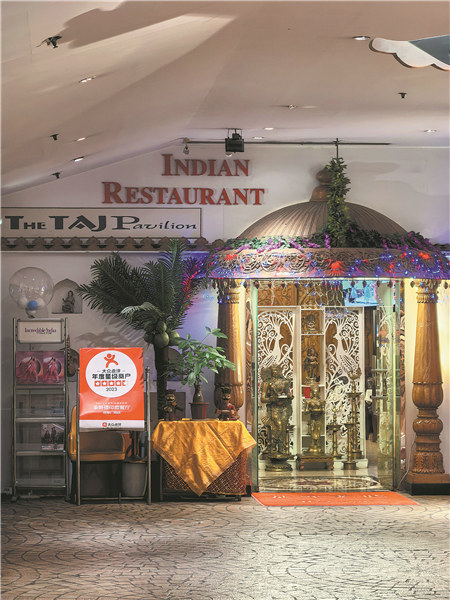

When Mehernosh Pastakia treats friends at his restaurant, the first thing he usually serves is Masala Chai, a traditional Indian beverage made with tea, milk, spices and sugar.At his well-decorated restaurant, he follows this with lip-smacking food that delights the senses.
"I never imagined I'd settle in Beijing and love it so much," said Pastakia, who is in his 50s."A Mumbai boy, turned Beijing local. This is what Chinese people call yuanfen, or destiny."
After Pastakia graduated in hotel management, he wanted to start his own business but luck was not on his side. One day, news arrived from thousands of kilometers away: an Indian restaurant in Beijing was looking to hire. It was 1991.
"Feeling the need for a fresh start, I wanted to give it a try. Imagine the distance that message traveled, particularly without fast communication channels," he said.
His seven years at the restaurant did not end in vain. Not only did he gain valuable experience, he also met his future wife, Zheng Xiaowen, who was working there as a part-time accountant.
Their frequent encounters eventually blossomed into love. However, dating someone from another culture proved to be more challenging than either of them had anticipated.
Pastakia recalled his first dinner at Zheng's parents' home."I tried my best to be polite and finished everything on my plate, but Zheng was upset. I was completely at a loss."
It was only later that he learned about table etiquette in Zheng's hometown. When hosting a meal, it is customary to leave some food on the plate when you are done eating, as this reflects the hosts' generosity and hospitality. Finishing all the food can suggest that not enough was prepared.
Beyond this initial misunderstanding, the couple faced many more challenges but managed to overcome them. This led to a happy marriage lasting more than 25 years, and they now have a son in his 20s.